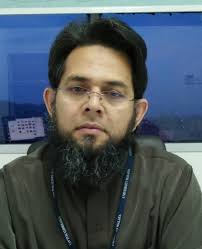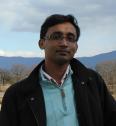This time Scientific Bangladesh has talked with Professor Dr Mohammad Tariqur Rahman from the University of Malaya. He is a Bangladeshi Microbiologist. He obtained an outstanding researcher award in 2014 from the faculty of science, Internationa Islamic University, Malaysia. He also obtained Gold Medal twice in International invention, innovation and Technology exhibitions.
His areas of expertise include 1. Traditional Medicine and Natural Product (Wound Healing) 2. Proteins (Metallobiochemistry) 3. Neuronal Development 4. Immunology (Hematopoietic Stem Cells) and 5. Gene Transcription
Scientific Bangladesh: Would you like to tell us about your academic and research life including any awards you won?
MTR: I completed BSc (1991, Honors in Microbiology), MSc (1992, Microbiology) from University of Dhaka; MSc. (1998, Biochemistry) and PhD (2001, Biochemistry) from Katholieke Universiteit Leuven, Belgium. My academic career began as a Lecturer of Biotechnology Discipline, Khulna University, Bangladesh in 1996. I worked as a ‘Center of Excellence researcher’ at the University of Fukui (Japan), and Associate Professor at the Faculty of Science, International Islamic University Malaysia (IIUM, 2005).
I worked briefly to start the Department of Pharmacy at East West University as the founding Chairman in 2004. I also served as the Head of Committee to establish the Biochemistry & Molecular Biology Program at IIUM.
Currently, I am working as a Professor at the Faculty of Dentistry, University of Malaya, Malaysia. I received Inter Faculty Council for Development Co-operation Scholarship, KU Leuven, Belgium (1996-2011), European Joint Research Commission Fellowship (2000), Young member Scientist award of the Society for Biological Inorganic Chemistry (2001), Gordon Res Conference (2001), Outstanding Researcher of the Faculty of Science, IIUM (2010).
Scientific Bangladesh: What has made you Teacher and researcher?
MTR: Fate, I guess!
Scientific Bangladesh: How do you manage the fund for research?
MTR: Mostly it comes through application to the different local funding agency.
Scientific Bangladesh: Where does a major part of your research fund come from, home or abroad?
MTR: As I wrote, local funding agents (Malaysia)
Scientific Bangladesh: Inadequate fund for research is a major problem in Bangladesh. What would you say in response to pointing fingers by many to this basic problem worldwide, not only in Bangladesh?
MTR: My opinion might not reflect the real scenario since I am not based in Bangladesh. However, inadequate funding could be “a” major problem depending on how you want to look at it. In my view, if the available funds were properly utilized, success and achievement index could have been much better than what we have today. In addition, I should say that proper distribution and identification of the niche area could help to increase the success index.
Scientific Bangladesh: What is your research area? What type of research facilities/ infrastructures you have developed over the years in your laboratory and how?
MTR: My major research interests include metallobiochemistry, in vitro stem cell propagation, neuronal proliferation in developing the brain, pharmacological applications of natural products (papaya), halal slaughtering, and the recent addition in the field of Scientometrics.
Scientific Bangladesh: How many researchers (PhDs and Masters) have you developed by this time? What qualities do you focus to develop in the researchers who work with you?
MTR: That’s not many, I think 12/13 so far! Your second part of the question is quite subjective. My focus often depends on the background as well as the challenges/problems that I face handling the students. Some students are naturally honest, sincere and hardworking, I just need to guide them to facilitate their research. Others are opportunistic, they want to get the degree by doing the minimum. What can we teach them? Yet there are others, who are perfect “actor” – “kajer shomoi kaji, kaj furaile paji”. So focusing on any quality that needs to develop a student as a researcher is quite subjective and challenging too. Regrettably, nowadays, in the current generation, we see students who soon after getting a degree like PhD, start thinking that they are equal to their supervisors!
Scientific Bangladesh: If the government had asked for your suggestions/advice for scientific advancement of Bangladesh, what would be three pieces of advice you would make as a researcher?
MTR: It is difficult for me to advise on these, as I am not aware of the current policies and practices.
Scientific Bangladesh: Do you think different professional bodies of scientists playing their due role? What are your suggestions for the leading professional organizations of scientists?
MTR: Looking at the current status at the global scale, it is difficult to say that everyone is playing their due role. I think the situation might improve if the professional and scientific bodies are lead by genuine professional or scientific achievers.
Scientific Bangladesh: How important leadership ability for someone to be a good researcher?
MTR: This is subjective. what kind of leadership you are talking about? By nature, everyone has the potential to lead and need to be a leader, but albeit in a certain boundary (limit). If the leadership whim goes beyond that limit, chaos is inevitable. So most important for everyone to understand that limit or boundary, beyond which s/he should not desire to be a leader or play the leadership role. In the same context, I would say finding (choosing) the right person to lead is more important, perhaps vital, rather than making everyone a leader.
Scientific Bangladesh: Have we missed any point that you would like to share with our readers?
MTR: Perhaps on another occasion.
Scientific Bangladesh: Thanks for your time.
MTR: Thank you for inviting me for the interview.


